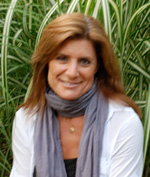David Miller is among a relatively new breed of financiers targeting investments in the local, sustainable farming sector.
Last week, the UIC Forum in Chicago was transformed into the Good Food Festival & Conference, where more than 3,500 people engaged in the local food economy met over three days to learn about new policy initiatives, networking and financing opportunities, and share ideas.
I met Mr. Miller at the trade show standing behind a table and next to a huge photo of a field of wheat gently blowing in the wind on a farm in Illinois. After 35 years of working in real estate and banking, Mr. Miller, based in Winnetka, formed Working Farms Capital to bring new capital to the field of sustainable agriculture. The photo was taken at the company’s primary venture, Iroquois Valley Farms LLC, a 600-acre parcel of land in Iroquois County, Ill., where about 35 investors own an equity stake in farmland that’s operated by farmers with long-term leases.
For the last five years, the company has been investing in Illinois farmland, with an eye toward transitioning what’s grown there to organic and sustainable crops for the local food network, says Mr. Miller, president and CEO. Last year, he raised $1.2 million in new capital and bought two more farms.
Mr. Miller’s setup is not your typical network of angel investors who invest in a standard equity structure. Rather, people invest in an operating company that buys farms as a business and then negotiates long-term leases with farmers that do the hard day-to-day work of running the farm.
Between handshakes at the trade show, Mr. Miller spent some time discussing his innovative business model.
Crain’s: Investing in farmland is a far cry from big city real estate and banking. How did you make the crossover?
Mr. Miller: My family comes from farming communities and the switch from my corporate background was inevitable. In 2005, I bought my Uncle George’s 10-acre farm in Iroquois County, where he was growing conventional corn and soybeans. In the process of figuring out what to do with the farm, I reconnected with family members who were farming organically and I transitioned that land to organic. The idea of investing in more farmland came out of that.
Crain’s: How do you scout for new farmland to purchase?
Mr. Miller: We don’t have to. Farmers are coming to us with opportunities. A farmer has a parcel of land that comes up for sale near his farm, and they might come to us to help them with the financing. We’re typically working with mid-size family farmers that already own anywhere from 80 to 800 acres of land.
Crain’s: Entrepreneurial experts call these types of ventures impact investment. Can you describe the philosophy behind what you’re doing and why you set up an advisory board to help out?
Mr. Miller: Our mission is to impact local and organic agriculture and we want to bring more local and healthy foods to more people. We’re trying to be thoughtful about how to impact the local food movement, so we set up an advisory board. Board members include Jamie Jones (assistant director of the Social Enterprise program at Northwestern University’s Kellogg School of Business), Helen Cameron (co-owner of restaurant Uncommon Ground) and Irv Cernauskas (co-owner of Irv & Shelly’s Fresh Picks, a local organic food delivery company). This will help us expand locally.
Now we’re going to focus on investing in smaller farmers too. we’ll be buying smaller parcels of land so we can work with a more diverse group of farmers, such as vegetable and dairy farmers, and those with pastured livestock, like grass-fed beef, and even permaculture farmers. Dealing with grain farms was easy, they just had to be certified organic. When you’re growing 100 different types of fruits and vegetables, it’s not so easy. The advisory board will help us with this.
Crain’s: Have investors done well so far by purchasing private equity shares in your company?
Mr. Miller: The original 2007 investors have more than doubled their investment. Few people have sustainable farmland investments in their portfolio. If you believe that people will want to continue to eat healthy, then you should have some money in this area. It’s also good if you want a diversified portfolio. Over 60% of our investors use their IRA or pension funds to invest.
Crain’s: You’re working on getting a new round of equity financing this year. How much are you expecting to raise and what are your investment plans?
Mr. Miller: We’ll be raising $1.5 million and some of those shares have already been pre-sold. We’ll be investing in more farmland, and we’re trying to work on a new venture to help younger farmers get started.
In Iowa, there’s a non-profit group called Practical Farmers of Iowa (that promotes diverse and sustainable agriculture). They have a starter program for new farmers and we’ve been working with them for the past year to see how we can bring investment capital to a new entity focused just on beginner farmers. They’re so passionate about farming and consumers want the local, organic food. It’s not such a leap of faith to think people would want to invest in it.



